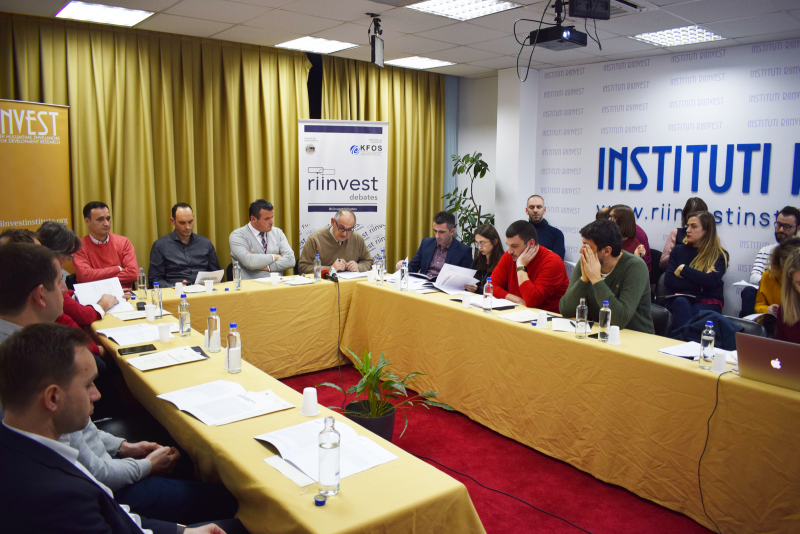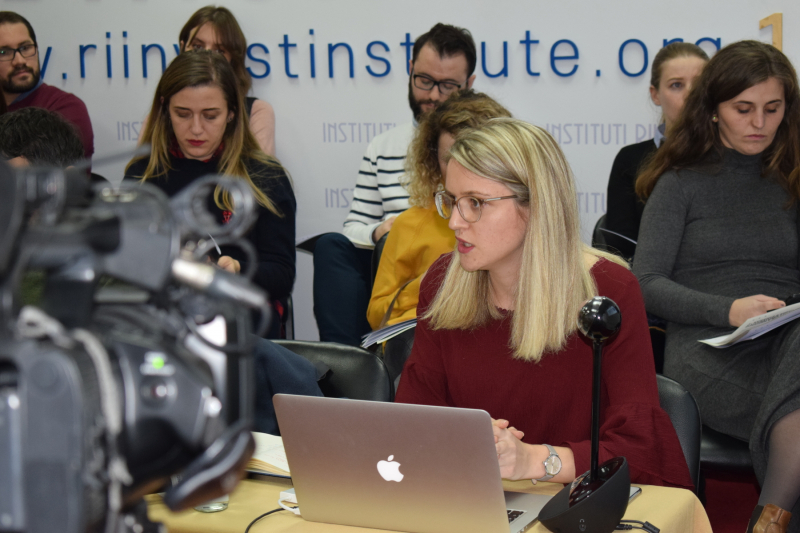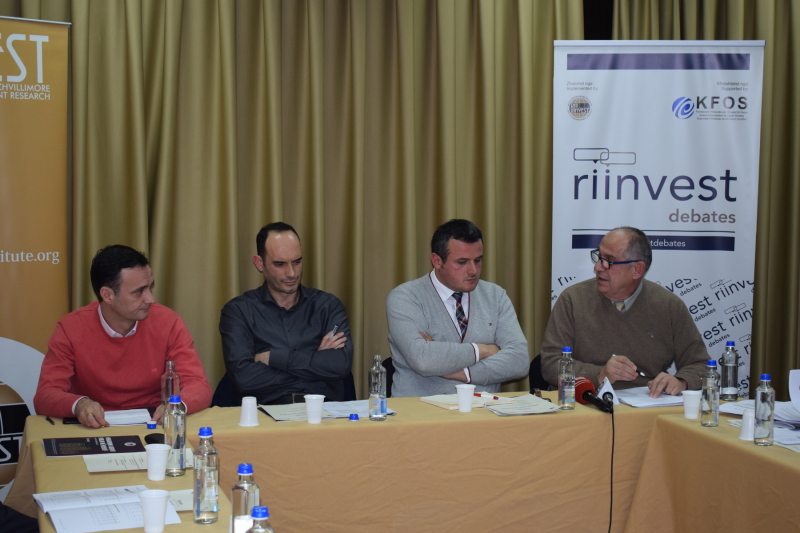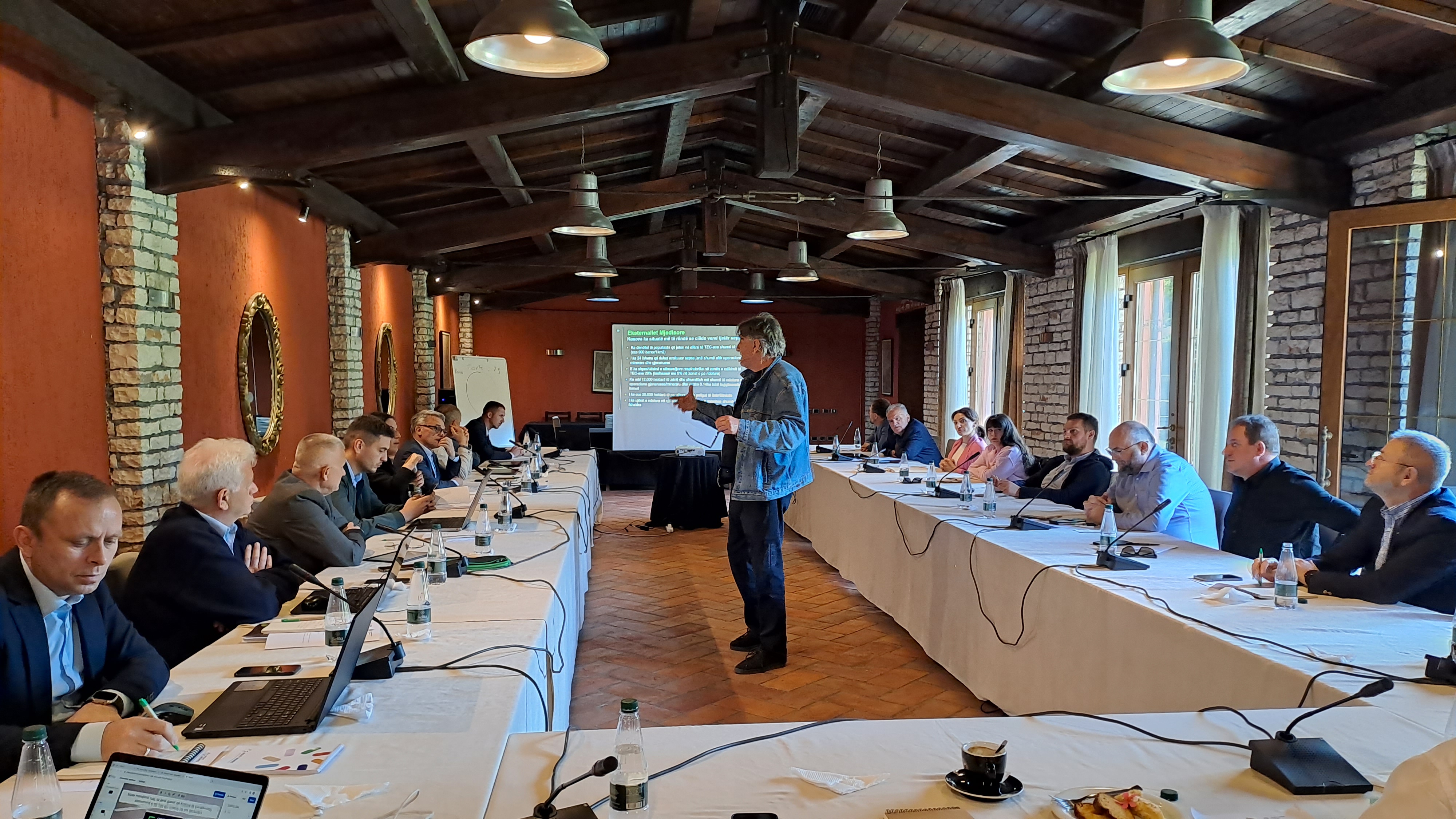
Riinvest Debates” platform was launched, with the first topic “Managing Kosovo’s public debt: external and internal debt.”
The debate was opened by Alban Hashani, executive director of Riinvest Institute. Hashani talked briefly about the platform “Riinvest Debates.” Hashani declared that having in mind that the public debate in Kosovo regarding economic situation and development problems, is being dominated from political prism, Riinvest with the support of KFOS, is committed to create a space for a well-built debate; using the resources of the best economists that the country possesses. Always according to Hashani, the goal of this platform for debates is to increase the objectivity of discussion and the quality of information. Debates will be held on monthly bases, where different topics will be treated, while the platform will have a permanent panel made up by 20 experts of economy, and depending on the topic it will be enriched with economists from other organizations and institutions, declared Hashani.
The director of Kosovo Foundation for Open Society (KFOS), Luan Shllaku, declared to be very happy that KFOS is supporting a platform that is built upon the expertise of Civil Society Organizations. According to him, this should be a broad public debate, with arguments brought by experts, and as such not leave space for political interpretations.
Muhamet Mustafa, senior fellow at Riinvest Institute, and one of the co-authors of the study report “Managing Kosovo’s public debt: external and internal debt”, declared that this is a very important topic, on which we are not used to discuss, especially in the last years since it has not been an actual problem. Mustafa declared that the goal of this report and debate, is to identify the actual trends of Kosovo’s internal and external public debt, and which problems might arise in the perspective.

Meanwhile, Antigona Uka, researcher at Riinvest Institute, presented the findings of the report. According to Uka, Kosovo has a low level of public debt. She added that according to the data of 2018, public debt is 17% of the GDP, and reaches almost 1 milliard euro; which is lower than the debt of the regional countries. Public debt in Bosnia and Hercegovina reaches 38% of the GDP; in Macedonia 41%; in Serbia 59%; in Albania 71%; and in Montenegro 74%. The trend of the public debt, reveals that Kosovo, Macedonia and Montenegro have a trend on the rise, while Bosnia and Hercegovina, Serbia, Albania, a trend on the decline. The data on public debt, reveal that in Kosovo in the period between 2009-2018, 610 million euros of debt have been contracted, from which 70% have been invested in infrastructure (37% roads, 19% water infrastructure, 13% railroads), 11% on energy, 6% on agriculture, 5% in public sector, 5% in education and health, and 4% in others, declared Uka.
Valentin Toçi, professor at the University of Prishtina, discussed the objectives of developing an international market, and mentioned as a problem the lack of credit rating. He added that Kosovo doesn’t possess a credit rating. However, according to him, a credit rating system would limit Kosovo in the aspect of loaning, and the cost of lending. According to Toçi, public debt should be in line with the priorities of economic development.

Meanwhile, Agim Demukaj from World Bank, declared that Kosovo stands very well regarding the institutions that manage the public debt, like the Treasury Department within the Ministry of Finances.





